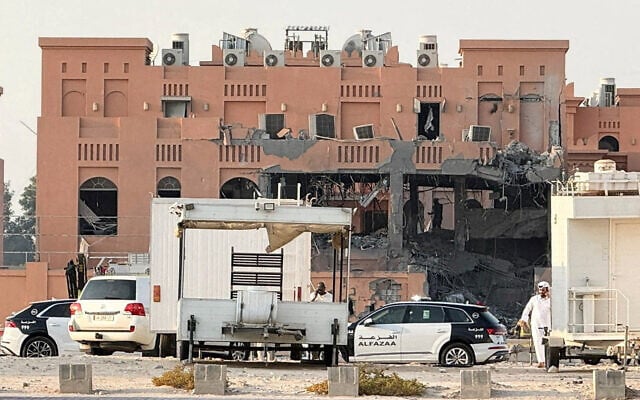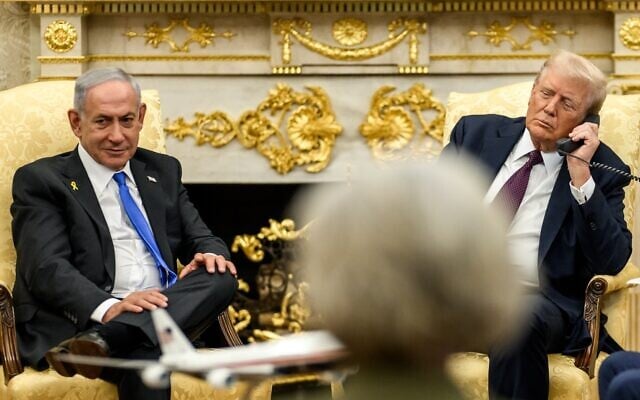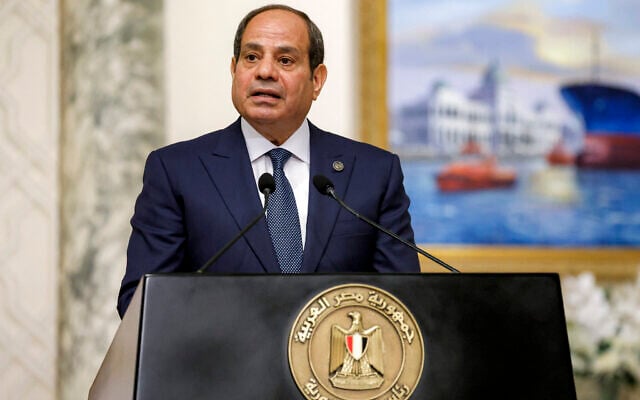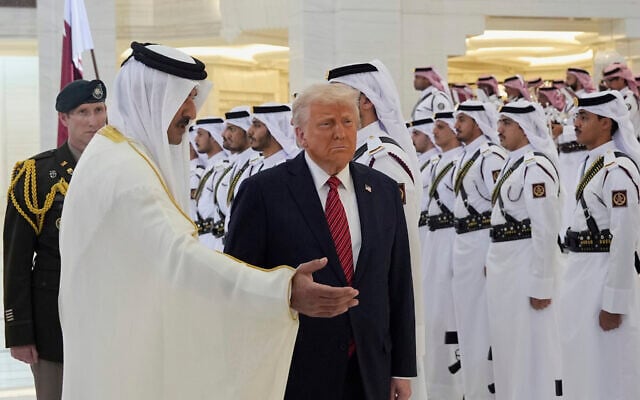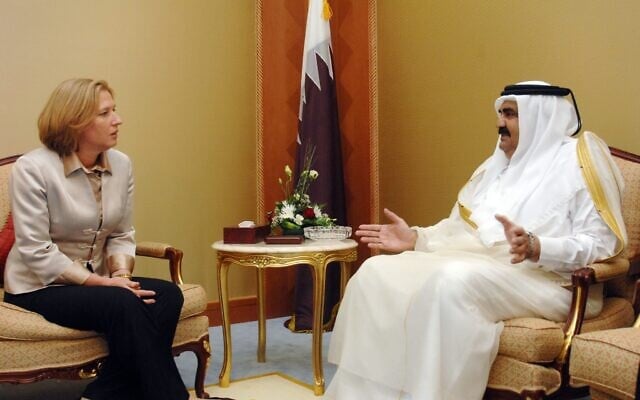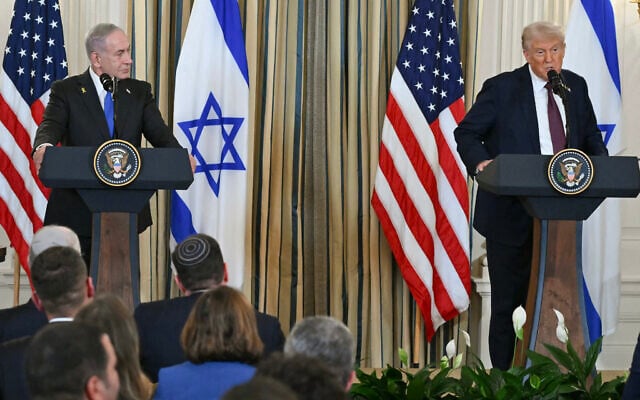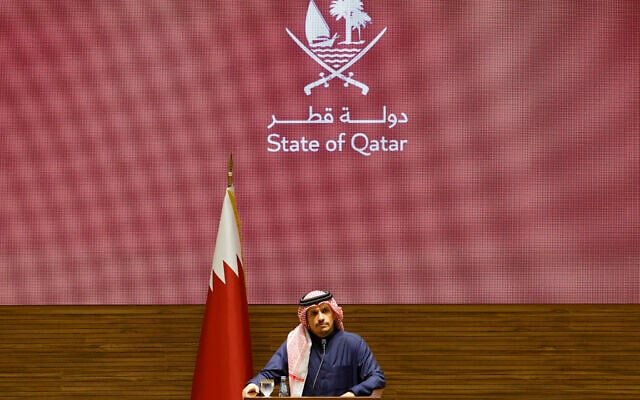

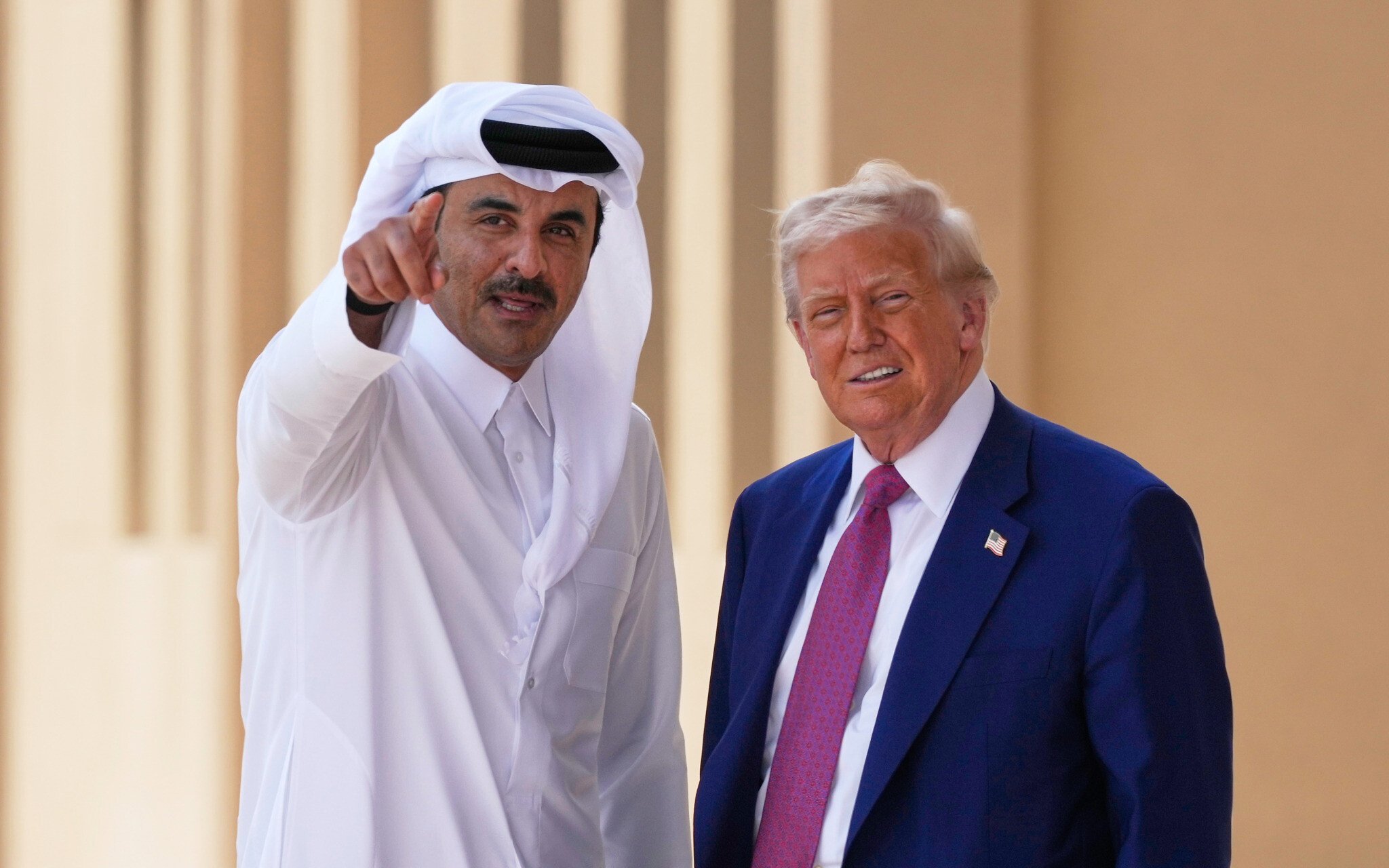
Israel’s airstrike in Qatar’s capital city earlier this month, which was meant to eliminate Hamas’s top leadership, was a double failure. Not only did Hamas leaders survive the attack, but the strike also gave Qatar more influence in Washington and in Arab capitals.
For years, Doha has hosted Hamas’s political bureau and served as the movement’s external headquarters, making it a hub for the terror group’s leadership in exile – and a natural focal point of Israeli pressure.
But in his phone call from the Oval Office on Monday – at the behest of US President Donald Trump – Prime Minister Benjamin Netanyahu assured his Qatari counterpart that Israel will not strike in the Gulf state again.
“I want to assure you that Israel has no plan to violate your sovereignty again in the future, and I have made that commitment to the president,” Netanyahu told Mohammed bin Abdulrahman bin Jassim Al Thani.
The promise is also part of Trump’s 20-point plan to bring about the end of the war in Gaza.
At this point, it is still too early to ascertain whether the plan – publicly presented on Monday by Trump, and publicly accepted by Netanyahu – will materialize, bring about the release of the Israeli hostages held in Gaza, end the war and change the reality in the Gaza Strip and beyond.
But it can be said with certainty that the one party that has so far collected the biggest pot of gold is Qatar.
Just days after the September 9 Israeli strike, Arab leaders flocked en masse to Doha. Only a few years earlier, they had declared a boycott on Qatar and tried to stifle it economically and politically. This was during the 2017 Gulf crisis, when Saudi Arabia, the UAE, Bahrain and Egypt imposed a blockade on Qatar over its ties with Iran and Islamist movements. At the recent Islamic summit in Qatar, there was no trace of the old hostility — only hugs, solidarity, and appreciation.
And so, Qatar found itself in the privileged position of the schoolyard bully who experienced a slight shove that was caught on camera – and now everyone gathers around to support him, shake his hand, and offer him candy.
Netanyahu’s apology to the Qatari prime minister and the public humiliation were received with satisfaction in Doha, which not only did not lose its mediation rights between Israel and Hamas but also pushed aside other countries that had always kept their distance from Hamas – like Egypt.
For Israelis, such an apology is deeply humiliating. Prime ministers almost never express contrition publicly to rival states, especially not in the Middle East region. Honor is important in these parts, and the image of Netanyahu bowing his head and apologizing to Qatar’s prime minister will add considerably to its reputation as an important state with almost unlimited influence in Washington.
In the Middle Eastern, Arab, and Islamic arena, there is an inherent clash between three axes:
These axes are not formal alliances but competing spheres of influence, with Qatar and Turkey often positioning themselves against the Saudi–Egyptian bloc while still hosting US forces and investments.
Trump, who alongside his presidency runs businesses in all Gulf states, could have prioritized the Saudi–Egyptian axis. Instead, he applied heavy pressure on Cairo with his “Gaza Riviera” plan, a controversial and now superseded proposal to develop a large economic zone in the Gaza Strip, including emigration of all its Palestinian residents – seen by Cairo as a disguised attempt to resettle Palestinians on Egyptian territory.
That pressure grew so heavy that Egyptian President Abdel-Fattah el-Sissi canceled a scheduled White House visit in protest. At the same time, countries like Qatar were left untouched – after all, Trump had not demanded that they host Gazans on their soil.
Later came the presidential visit to the Gulf, stopping in Saudi Arabia, UAE and Qatar.
Israeli media made much of the fact that Russia hosted a senior Hamas delegation a month after the October 7 massacre. In contrast, few in Israel or the world paid attention to the astonishing fact that the US president spent several days and received lavish gifts from the very state that funded Hamas, blessed the October 7 attack, and fuels hatred of Israelis and Jews through its media networks, first and foremost Al Jazeera.
Qatari money – the same money that finances hundreds of faculties in American universities that lean heavily anti-Israel, and most likely also funded the huge waves of anti-Israel demonstrations at the beginning of the war – softened Trump, and already during his visit to Doha it was clear that Qatar would continue to enjoy close ties with the White House, despite the dangerous role it plays.
Qatar is one of the largest foreign funders of US universities, pouring billions of dollars into campuses across the country – a fact often cited by critics who argue that these funds have tilted academic discourse against Israel.
The Qatari paradox has lasted for many years, and it certainly did not begin with Trump. On the one hand, Qatar hosts the largest US military base in the region (and pays its expenses) and is considered a preferred ally of Washington; on the other – it funds Islamic extremists across the Arab world.
The Al Udeid Air Base near Doha is the nerve center of US operations in the Middle East, making Qatar indispensable to American military planners even as Washington looks uneasily at its ties to Hamas.
Sheikh Yusuf al-Qaradawi, the spiritual father of the Muslim Brotherhood, lived and operated from Qatar for 50 years. He hosted the popular Al Jazeera program “Sharia and Life,” issued hostile fatwas against Israel, and sanctioned suicide bombings (even though suicide is strictly forbidden in Islam).
Through Al Jazeera, Qaradawi became one of the most influential Islamist clerics in the Arab world, shaping the ideological climate far beyond Qatar.
At the same time, the Qataris normalized relations with Israel, and until 2009 an Israeli de facto mission operated in Doha. This low-level diplomatic office was closed after Operation Cast Lead in the Gaza Strip in 2009, ending a short-lived chapter of semi-official ties between the Doha and Jerusalem.
Since then, much water has flowed in the Persian Gulf (or the “Arabian Gulf,” as Arab states call it), and Qatar has distanced itself from Israel while drawing even closer to the United States.
This closeness continued across several administrations, and none of the presidents – not Barack Obama, nor Trump or Joe Biden – set conditions for Qatar or demanded that it cut ties with extremist Islamic organizations or stop the incitement it leads in the US and Europe.
The Arab states that declared a boycott of Qatar in 2017 initially had Trump’s backing, when he said in his first term at a Rose Garden press conference that Qatar had always been a very high-level terror funder, and took credit for its isolation.
But the president’s stance shifted within weeks, when secretary of state Rex Tillerson and defense secretary Jim Mattis acted against Qatar’s isolation, given that it hosts the Al Udeid base. Shortly after, Trump was already offering to mediate the crisis between Qatar and its Arab neighbors.
Trump began his second term without attacking Qatar for terror financing or incitement against Israel. Qatar, which hurried to invest money in Trump family real estate projects, received a pass from presidential rebuke. Among these projects was the bailout of Kushner Companies’ 666 Fifth Avenue property, a deal widely seen in the US as evidence of Qatar’s quiet financial leverage in the Trump orbit.
Since then, Trump has praised the Qataris many times. At Monday’s press conference, alongside Netanyahu, the US president personally thanked the “fantastic” emir of Qatar for his support of his plan to end the war in Gaza.
Instead of attacking in Doha – a move that would have angered the US president and Arab states – Netanyahu should have insisted to Trump on a separation of forces: namely, separating Qatar from the Gaza Strip.
The prime minister should have voiced Israel’s harsh and legitimate concerns regarding Qatar and warned against its involvement in Gaza’s reconstruction, which could benefit forces of political Islam, whether called Hamas or by any other name.
But Netanyahu, whose close advisers allegedly were on Qatar’s payroll during the Gaza war, was content to say that Qatar is a “complicated state” to justify his long-standing policy that included transferring Qatari money to Hamas; and to justify the strike in Doha that he initiated despite Mossad opposition, which ended in a fiasco.
Netanyahu is in a position of weakness, and instead of setting demands – he was forced to apologize in shame.
All these circumstances, together with Qatar’s wealth, ensure that it will continue to make fateful decisions about Gaza’s future – decisions that will also affect Israel’s future.
Trump gave Qatar not only a full pardon for everything it has done until now, but also carte blanche for continued involvement in Gaza and other hotspots in the Middle East and around the world.
For two years, Doha has done nothing to get Hamas to disarm. Blame and responsibility for the continuation of the war in Gaza lies partly at its door, and for this it was not punished – but rewarded.


